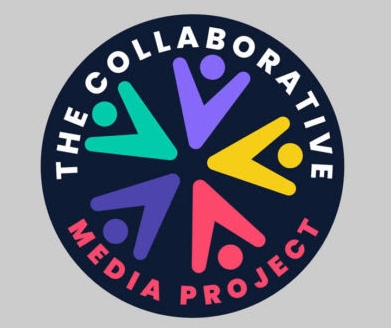Stephen Ukandu, Umuahia
Director MacArthur Foundation, Nigeria, Dr. Kole Shettima, has said that democracy cannot work in Nigeria without vibrant sub-national media.
Shettima, represented by the Deputy Director of the Foundation, Dr. Oladayo Olaide, stated this in a remark during the official launch of C-Media by the Wole Soyinka Centre for Investigative Journalism, WSCIJ, on Wednesday.
According to him, it is practically impossible to have a democracy that can deliver dividends without strong sub-national media platforms that can hold state and local governments accountable, as well as provide a platform for the voiceless in the local communities to be heard.
He noted with regret that the oversight and watchdog roles of the media had been focused more at the centre while the sub-national regions are either under reported or completely overlooked.
“The implication is that significant parts of the Nigeria space is either under reported or left out completely,” he regretted.
He said that the failure of the media in the last two decades to beam their searchlight on governance in the states and local governments where about 52% of the country’s annual budget is spent, “is partly responsible for the under developments at those levels of government.”
Describing journalists as catalysts that activate the capacity of democracy to deliver development, the MacArthur Foundation boss urged media practitioners to focus on states and local governments with a view to holding them accountable to the people.
Admitting that democracy in Nigeria is facing a lot of human and institutional challenges, Shettima attributed the failure of the media to stand up to their responsibilities to the complexity of the Nigeria structure.
He identified some of the challenges as: deeply unaccountable political class; large illiterate population; significantly compromised oversight bodies and regulatory agencies; as well as highly-politicised governance culture where religion and ethnicity often drive development planning and spending.
“The issues of widespread insecurity and impunity are also part of the challenges,” he added.
He equally expressed worry that the media in Nigeria are “dangerously dependent on state patronage for survival,” a sad development he said, was a danger signal.
He noted with displeasure, the low investment of the media on investigate journalism, and charged the practitioners to delve into investigative works to help expose the mis-governance at the sub-national regions and also help in educating the people at the grassroots on the policies and programmes of Government.
Shettima tasked the regulatory bodies in the media industry to shift from their usual punitive posture to partnership engagement with the media and encourage them to use their platforms to educate citizens on their rights and responsibilities.
He noted that the media could not be sustained only by sponsorship from donor organisations, and urged Nigerians and corporate bodies to consciously invest in the media considering the pivotal role of the press.
In her remarks before she launched the C-Media project, the Executive Director, WSCIJ, Motunrayo Alaka, noted with concern, that states and local governments were under reported in the media.
She urged the media to beam their searchlight on sub-national governments, investigative works, and to give voice to the voiceless in society.
Alaka explained that the C-Media project which is in partnership with 26 media organisations, was to give attention to collaborative media engagement for development, inclusiveness, and accountability.
“The project is about how to build the media that we want, and to build the country that we want,” she said.
Echoing the assertions of the late Nelson Mandela of South Africa, Alaka said that the press must be free from state interference, and must enjoy the protection of the constitution.
In her keynote speech, Vice Dean for Education and Academic Affairs, John Hopkins School of Advanced International Studies, Dr. Chiedo Nwankwo, submitted that it would be impossible to build a vibrant democracy without independent media playing the watchdog role at the sub-national level.
Speaking on the theme: “Role of Sub-national Media in Democracy Building in Nigeria,” the erudite scholar declared that “the absence of Independent media renders democracy unworkable.”
Noting that democracy is essentially a framework for development and self actualisation, Dr. Nwankwo charged the media to rise to their crucial role of agenda-setting, and amplifying the people’s voice as they demand democracy gains.
Advocating for more media attention to the grassroots she said,”everybody is dealing with the federal government, not enough people are dealing with the states, while nobody is dealing with the local government.”
She submitted that effective and efficient governance must be local, hence the need to build sub-national media for robust engagement at that level.
She advocated a focus on community radio to help in dissemination of vital information to the local communities such as outbreak and control of diseases, farming methods, early warnings, etc.
Dr. Nwankwo also called for de-politicisation of the issuance of broadcasting licenses by the Nigeria Broadcasting Corporation, NBC, especially for community radio.
Attributing the success story of Indian democracy to the ubiquity of community media in that country, Dr. Nwankwo concurred that “democracy can’t work without vibrant sub-national media.”
She regretted that the need for vibrant sub-national media had been sacrificed at the altar of the quest for profitable media, which she said would undermine the growth of democracy.
“As she puts it: “If we cannot build sustainable media model, then we cannot have sustainable democracy. And in the absence of that development will continue to be elusive.
“There is no existence of democracy without strong sub-national media.”

